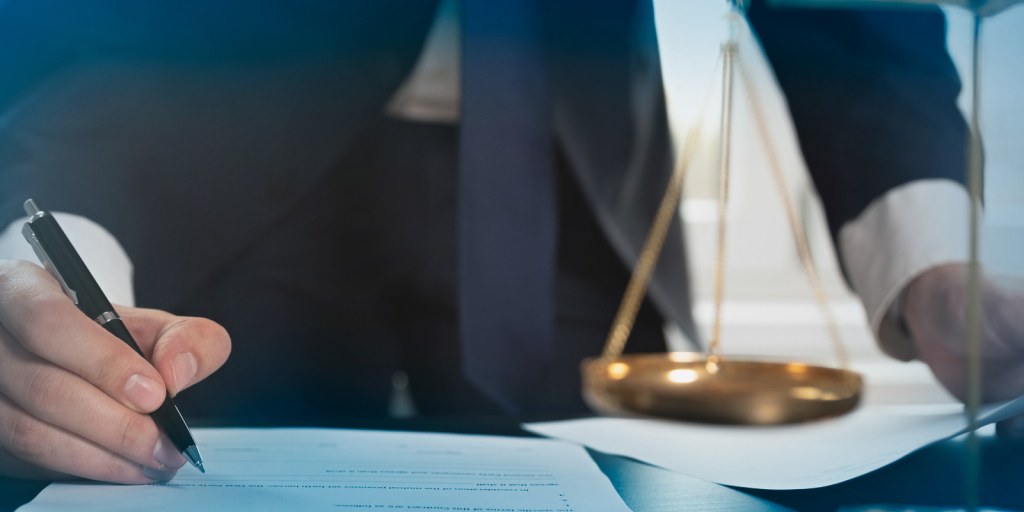Unlock The Power Of Legal Advice Privilege In House Counsel: Your Go-To CTA Solution
Legal Advice Privilege In House Counsel
Greetings, Readers! Today, we will be exploring the topic of legal advice privilege in house counsel. This concept plays a crucial role in providing protection and confidentiality to legal advice sought within a corporation. Understanding the ins and outs of legal advice privilege can be beneficial for both individuals working in the legal field and those seeking legal guidance. So, let’s delve into the details and explore the key aspects of legal advice privilege in house counsel.
Table of Contents
Introduction
What is Legal Advice Privilege?
Who Does Legal Advice Privilege Apply to?
When Does Legal Advice Privilege Come into Effect?
Where Does Legal Advice Privilege Apply?
Why is Legal Advice Privilege Important?
How Does Legal Advice Privilege Work?
Advantages and Disadvantages of Legal Advice Privilege
FAQs
Conclusion
Final Remarks
2 Picture Gallery: Unlock The Power Of Legal Advice Privilege In House Counsel: Your Go-To CTA Solution


Introduction
Legal advice privilege, also known as attorney-client privilege, is a fundamental principle in the legal profession that protects the confidentiality of communications between a lawyer and their client. This privilege ensures that clients can freely seek legal advice without fear of their communications being disclosed to third parties.
1. Legal advice privilege provides a safe space for clients to discuss their legal concerns openly and candidly. This encourages clients to provide all necessary information to their lawyers, enabling the lawyers to provide accurate and effective advice.

Image Source: barnespc.com
2. The privilege also promotes the administration of justice by allowing lawyers to access all relevant information from their clients without the fear of being compelled to disclose it in court proceedings or otherwise.
3. In the context of in house counsel, legal advice privilege plays a vital role in maintaining the confidentiality of communications between in house lawyers and their employer. This allows corporations to obtain legal advice internally without the risk of their sensitive information being exposed.
4. It is important to note that legal advice privilege only applies to confidential communications made for the purpose of obtaining legal advice. It does not cover communications made for illegal activities or communications intended to further fraudulent or harmful actions.
5. Legal advice privilege is not absolute and can be waived by the client. If a client voluntarily discloses privileged information to a third party, the privilege may be lost. However, this waiver must be explicit and intentional.
6. Legal advice privilege also extends to communications made by the lawyer to the client, as long as they are made in connection with the provision of legal advice. This ensures that lawyers can freely communicate their advice and recommendations to their clients without the fear of those communications being disclosed.

Image Source: jonesday.com
7. It is worth mentioning that legal advice privilege is subject to certain limitations and exceptions, such as the crime-fraud exception. If the lawyer’s services are sought to further ongoing or future illegal activities, the privilege may not apply.
What is Legal Advice Privilege?
Legal advice privilege, also known as attorney-client privilege, is a principle that protects the confidentiality of communications between a lawyer and their client. It allows clients to seek legal advice without fear of disclosure to third parties.
Legal advice privilege covers both oral and written communications, including emails, letters, and meetings between the lawyer and client.
Legal advice privilege ensures that clients can be open and honest with their lawyers, providing all necessary information for accurate legal advice.
Legal advice privilege only applies to communications made in confidence for the purpose of obtaining legal advice.
Legal advice privilege is not absolute and can be waived by the client.
The privilege also extends to communications made by the lawyer to the client in connection with the provision of legal advice.
Exceptions to legal advice privilege include communications for illegal activities or to further fraudulent actions.
Who Does Legal Advice Privilege Apply to?
Legal advice privilege applies to communications between a lawyer and their client. It is not limited to any specific profession or industry.
In the context of in house counsel, legal advice privilege applies to communications between in house lawyers and their employer.
Legal advice privilege also extends to communications made by the lawyer to the client in connection with the provision of legal advice.
It is important to note that legal advice privilege does not extend to communications with third parties who are not involved in the lawyer-client relationship.
Legal advice privilege applies to both individuals and corporations seeking legal advice.
When Does Legal Advice Privilege Come into Effect?
Legal advice privilege comes into effect as soon as the lawyer-client relationship is established and the communication is made in confidence for the purpose of obtaining legal advice.
Legal advice privilege covers both current and future communications made between the lawyer and client.
The privilege remains in effect even after the lawyer-client relationship has ended.
It is important to note that legal advice privilege can be waived by the client, explicitly or implicitly.
Legal advice privilege does not cover communications made for illegal activities or communications intended to further fraudulent or harmful actions.
Where Does Legal Advice Privilege Apply?
Legal advice privilege applies in jurisdictions that recognize and uphold the principle of attorney-client privilege.
These jurisdictions include common law countries such as the United States, the United Kingdom, Canada, and Australia.
Legal advice privilege may vary in its scope and application between jurisdictions, so it is essential to understand the specific laws and regulations of the relevant jurisdiction.
It is worth noting that legal advice privilege may not apply in certain situations, such as when the lawyer’s services are sought to further ongoing or future illegal activities.
Why is Legal Advice Privilege Important?
Legal advice privilege is important for several reasons:
1. It enables clients to seek legal advice without fear of their communications being disclosed to third parties, promoting open and honest communication between lawyers and clients.
2. It promotes the administration of justice by allowing lawyers to access all relevant information from their clients, without the fear of being compelled to disclose it in court proceedings or otherwise.
3. It allows corporations to obtain legal advice internally without the risk of their sensitive information being exposed, preserving confidentiality within the organization.
4. It ensures that lawyers can communicate their advice and recommendations to their clients freely, without the fear of those communications being disclosed.
5. Legal advice privilege upholds the principle of client confidentiality, which is essential for maintaining trust and preserving the lawyer-client relationship.
How Does Legal Advice Privilege Work?
Legal advice privilege works by protecting the confidentiality of communications between a lawyer and their client.
The privilege ensures that the client’s communications remain confidential and cannot be disclosed to third parties without the client’s consent.
The privilege applies to both oral and written communications made for the purpose of obtaining legal advice.
Legal advice privilege is not absolute and can be waived by the client, explicitly or implicitly.
Communications made by the lawyer to the client in connection with the provision of legal advice are also covered by the privilege.
Exceptions to legal advice privilege include communications for illegal activities or to further fraudulent actions.
Advantages and Disadvantages of Legal Advice Privilege
Advantages of legal advice privilege:
1. Protection of confidentiality: Legal advice privilege ensures that clients can seek legal advice without fear of their communications being disclosed to third parties.
2. Open and honest communication: Privilege encourages clients to provide all necessary information to their lawyers, enabling accurate and effective legal advice.
3. Promotion of justice: Lawyers can access all relevant information from their clients without the fear of being compelled to disclose it in court proceedings or otherwise, promoting the administration of justice.
Disadvantages of legal advice privilege:
1. Limited access to information: The privilege may prevent certain information from being disclosed, which can potentially hinder the resolution of legal disputes or investigations.
2. Potential for abuse: In some cases, the privilege can be misused to cover up illegal activities or impede investigations.
3. Complexity: The scope and application of legal advice privilege can vary between jurisdictions, making it a complex area of law to navigate.
FAQs
Q: Does legal advice privilege apply to all communications between a lawyer and client?
A: Legal advice privilege generally applies to confidential communications made for the purpose of obtaining legal advice. However, there are exceptions and limitations to the privilege.
Q: Can legal advice privilege be waived by the client?
A: Yes, legal advice privilege can be waived by the client. However, the waiver must be explicit and intentional.
Q: Does legal advice privilege apply to in house counsel?
A: Yes, legal advice privilege applies to communications between in house lawyers and their employer, as long as the communications are made in confidence for the purpose of obtaining legal advice.
Q: What happens if legal advice privilege is breached?
A: Breaching legal advice privilege can have serious consequences, including legal and ethical repercussions for the party responsible for the breach.
Q: Are there any exceptions to legal advice privilege?
A: Yes, there are exceptions and limitations to legal advice privilege, such as the crime-fraud exception. If the lawyer’s services are sought to further ongoing or future illegal activities, the privilege may not apply.
Conclusion
In conclusion, legal advice privilege in house counsel is a crucial concept that protects the confidentiality of communications between lawyers and their clients within a corporation. This privilege ensures that clients can seek legal advice freely, fostering open and honest communication. While legal advice privilege has its advantages and disadvantages, it plays a vital role in promoting justice and maintaining confidentiality. Understanding the nuances of legal advice privilege can benefit individuals working in the legal field and those seeking legal guidance within a corporate setting.
Final Remarks
Legal advice privilege in house counsel is an essential aspect of the legal profession. It provides protection and confidentiality to communications between lawyers and their clients, allowing for open and honest discussions. It is important to remember that legal advice privilege is subject to limitations and exceptions. It is always advisable to consult with legal professionals to understand the specific laws and regulations applicable to your jurisdiction. This article serves as a general overview and should not be considered legal advice. Remember to seek professional counsel for any specific legal concerns you may have.
This post topic: Law and Society

